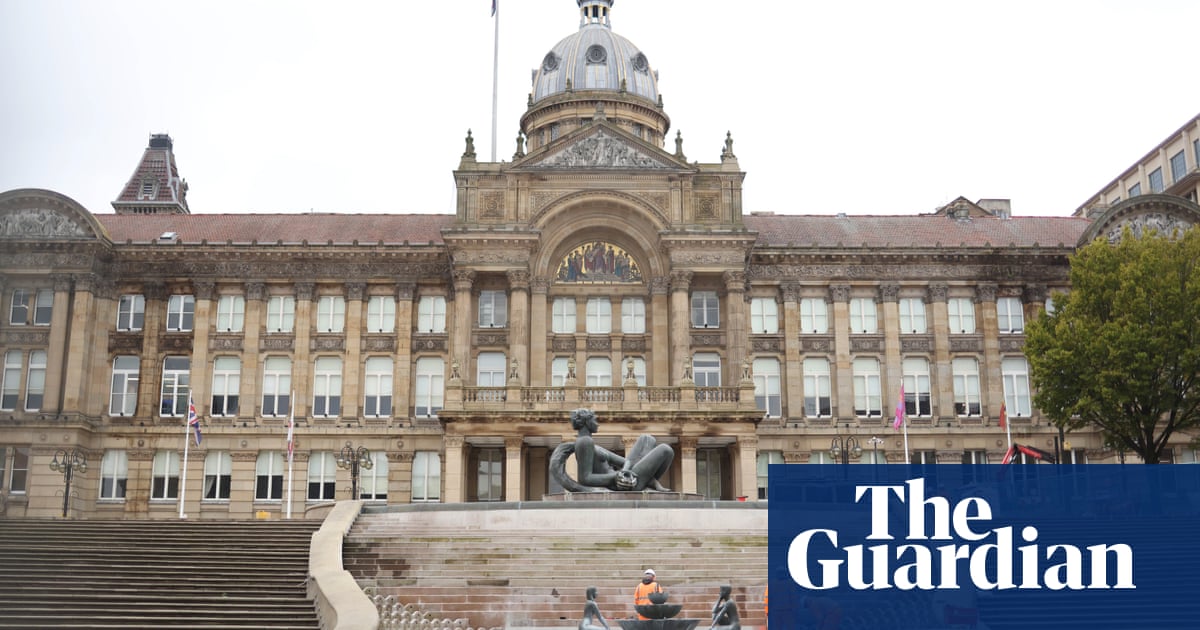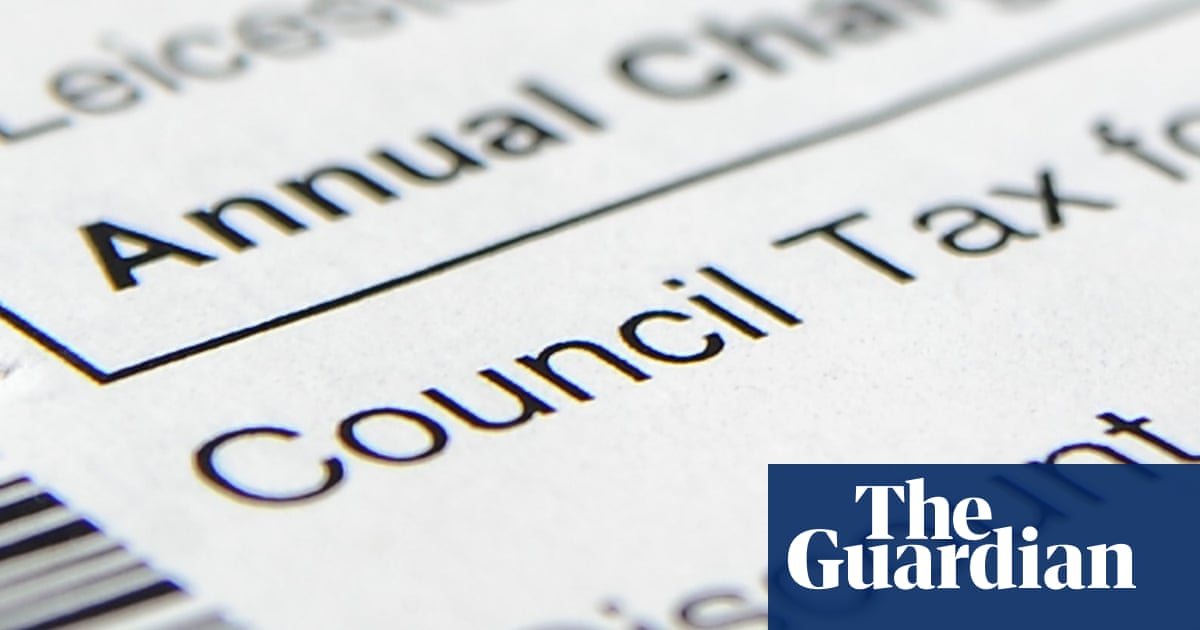
Council tax in Birmingham is likely to increase by up to 10% after the government allowed the local authority to bypass the national cap without the need for a local referendum.
The increase will affect more than 1 million people in the UK’s largest local authority, which declared itself effectively bankrupt last year due to a £300m budget gap.
The levelling up secretary, Michael Gove, announced the government would not oppose the Labour council’s request to raise council tax by up to 10% from April.
This would equate to an extra £191 a year for a band D property in the city.
Gove also gave the green light for councils in Thurrock, Woking and Slough – all of which have issued section 114 notices in recent months signalling they are unable to fulfil their legal duty to balance the books – to increase their council tax rates by up to 10%.
Usually any proposed rise above the 4.99% cap would trigger a referendum, but councils can apply to bypass this under exceptional circumstances such as issuing a section 114 notice.
Gove said it was “disappointing that Birmingham city taxpayers are having to foot the bill for the council’s poor governance and decision-making”.
“Whilst the government will not oppose this request given the seriousness of the circumstances, any decision to increase council tax is solely one for Birmingham city council, who should have taken into account the pressures that people in Birmingham are currently facing on living costs,” he said.
Councillors will confirm exactly how much council tax will rise in a meeting on 5 March.
The local authority asked the government for permission to increase council tax by up to 10% a year over the next two years, with the council leader, John Cotton, previously saying the actual increase would be “dependent on the work we are doing to balance the council’s budget”.
Birmingham council is facing huge bills to settle equal pay claims brought by employees and sort out problems with a big IT upgrade, as well as dealing with increased pressure on homelessness services and social care.
It has also lost £1bn in government funding over the past decade, Cotton said.
Robert Alden, leader of the opposition Conservative group in the city, said the council had resorted to a “tax bombshell on Brummies” to balance the books.
Birmingham city council declined to comment.
Last year, Croydon council, described by its mayor as being in the “worst financial position in local government history”, increased council tax by 15% after being given special permission by government to do so.
The moves at Birmingham and elsewhere come as Labour warned working people were “paying more for less” as new analysis by the party showed council tax bills were on track to increase by almost £13bn over the next five years.
Last week a Guardian investigation revealed that households across England will face an above-inflation £2bn increase in council tax after Gove’s levelling up department said it expected the usual maximum rise of 4.99% to be applied this spring.
Councils could also be encouraged to sell publicly owned buildings and land under government proposals to plug gaping budget shortfalls hitting town halls across the country.
In a deal to address the worsening financial crisis for local councils, the government has told town halls that core spending power will increase by up to £4.5bn next year, or 7.5% in cash terms.
However, almost half of the increase is based on the assumption that every local authority in England applies the maximum allowable increase.
Overall levels of council tax are on track to have more than doubled since Gordon Brown left office in 2010, with figures from the Office for Budget Responsibility analysed by Labour showing an increase in the annual amount taken from the tax to reach more than £57bn by 2028.
Angela Rayner, the shadow deputy prime minister and levelling up secretary, said a Labour government would provide long-term funding settlements to local councils, although did not specify whether it would increase the level of financial support for councils above current Conservative plans.
“Rishi Sunak’s raw deal has left working people worse off and seeing the services they rely on crumbling around their ears. Taxpayers counting the costs of this £57bn Tory bombshell while councils have been hollowed out by 14 years of failure,” she said.
A government source said: “This is breathtaking hypocrisy from the Labour party whose severe mismanagement of Birmingham – the largest local authority in Europe – has bankrupted the council. There are eye-watering levels of debt and wasteful spending. This is a flashing red warning sign for what Labour government would do to the UK. More spending, more borrowing, more debt and higher taxes – taking us back to square one.”












